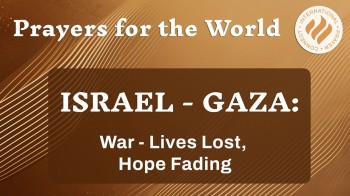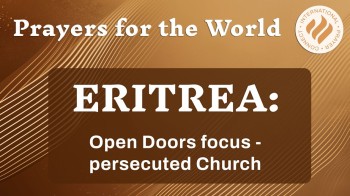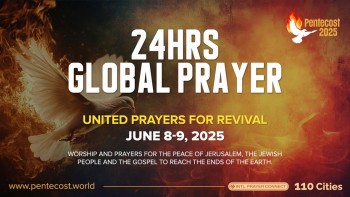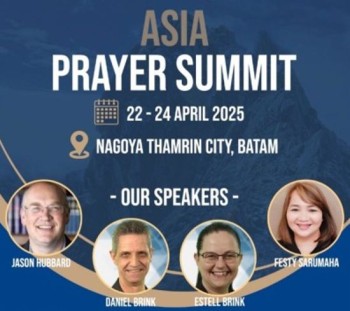
Super User
Lorem ipsum dolor sit amet, consectetur adipisicing elit, sed do eiusmod tempor incididunt ut labore et dolore magna aliqua. Ut enim ad minim veniam, quis nostrud exercitation ullamco laboris nisi ut aliquip ex ea commodo consequat. Duis aute irure dolor in reprehenderit in voluptate velit esse cillum dolore eu fugiat nulla pariatur
Ongoing violence in North and South Kivu in the Democratic Republic of the Congo (DRC) is leaving a trail of death, destruction, and displacement. The sound of gunfire has become all too familiar for families in towns like Masisi Centre, where intense clashes erupted again this week between M23 rebels and local militias.
The toll is rising. At least two civilians were killed, many more injured, and families remain trapped in their homes, paralyzed by fear and unable to access necessities. Fighting has made accurate assessments nearly impossible, but the suffering is undeniable. Amid the chaos, courageous workers and local volunteers are pressing on where they can. In Sake, over 500 displaced households have received emergency hygiene and household supplies, and water points are being repaired—offering a sliver of relief in a sea of hardship.
But relief is hard to come by. In South Kivu’s Fizi Territory, the violence has surged again. Villages already sheltering thousands of displaced people—Mulima and Lusuku—are now emptying once more as new waves of fighting force families to flee. To make matters worse, the southern province of Tanganyika is now facing a rapidly growing cholera outbreak. Nine out of eleven health zones are affected. Over 1,450 people have been infected this year and 27 have died—a six-fold increase from the same period last year. With clean water nearly non-existent in many communities and health centres struggling to keep up, the crisis is intensifying.
The M23, claiming to defend the interests of Congolese Tutsis, has advanced with alarming speed—reportedly with the support of Rwandan forces. Other groups like the Allied Democratic Forces (ADF) also remain active, fuelling instability that local communities have endured for far too long.
The people of eastern Congo are weary. Displaced from homes, cut off from clean water, and gripped by fear, they are facing one of the region’s darkest seasons in recent memory. For many, it feels as though the world has looked away. But their voices rise. And so must ours—in prayer, in advocacy, and in hope that justice and peace will one day take root where violence has reigned for too long.
Prayer Pointers
- Pray: for protection, provision, and peace for civilians caught in crossfire and forced to flee their homes. “The Lord is a refuge for the oppressed, a stronghold in times of trouble.” - Psalm 9:9
- Pray: for an end to armed conflict and for justice to restrain those who exploit violence to maintain power. “When justice is done, it brings joy to the righteous but terror to evildoers.” Proverbs 21:15
- Pray: for healing, clean water, and resources to contain the cholera outbreak and strengthen overwhelmed health workers. “I will bring health and healing to it; I will heal my people and let them enjoy abundant peace.” Jeremiah 33:6
Prayer – Praying for the weary people of Congo
Lord, have mercy on the people of Congo. Shelter the displaced, heal the wounded, stop the violence, and purge disease. Raise up justice, restore families, and stir the global Church to act with compassion, boldness, and enduring faith. Amen
In the Shadows of the Israel - Gaza War: Lives Lost, Hope Fading
A fresh wave of airstrikes has left Gaza reeling, with the latest blow landing on a shelter in Jabalia — a former UN clinic now crowded with hundreds of displaced people seeking refuge. Nineteen lives were lost, including nine children. Among them, heartbreakingly, a two-week-old baby.
The building had already been damaged earlier in the war, yet more than 700 people were still sheltering there. “They had nowhere else to go,” said Philippe Lazzarini of UNRWA, echoing the desperation of thousands who are simply trying to survive. Across Gaza, families are mourning. Entire homes have been flattened in Khan Younis, Rafah, and Gaza City. First responders report pulling the bodies of women, infants, and elderly from rubble. With aid blockaded and medical centres overwhelmed, each new strike brings another layer of grief — another reminder of the growing humanitarian abyss.
Israel’s Prime Minister Benjamin Netanyahu announced a new military corridor, saying operations had “switched gears.” This strategy, described as increasing pressure on Hamas by seizing territory and dividing the Gaza Strip, aims to force the release of 59 remaining hostages. But for civilians, it has meant intensified bombardment, more displacement, and the erosion of any semblance of safety.
More than 140,000 people have been ordered to evacuate Rafah in recent days — a place many had already fled to, only to be uprooted again. Behind every policy shift, behind each new military objective, are families. Children who no longer sleep. Mothers clinging to memories. A population shrinking under the weight of war.
Even in the heart of sorrow, voices are rising — some calling for ceasefires, others for humanitarian corridors, and all for life over politics. As the Hostages and Missing Families Forum urged, “There is an obligation to pursue every possible channel for the release of hostages.” But there is also an obligation — moral, ancient, unshakable — to preserve the dignity and life of all human beings caught in this terrible storm.
Prayer Pointers
- Pray: for Protection of the Innocent. Ask God to shield civilians—especially children and the displaced—from violence and fear. Pray that homes, hospitals, and shelters would be spared and preserved. “Deliver me, O Lord, from evil men; preserve me from violent men." Psalm 140:1
- Pray: for Just and Compassionate Leadership
Intercede for leaders on all sides to reject political gain and prioritize peace. Pray for wise, humble decisions that honour human dignity. "Give justice to the weak and the fatherless; maintain the right of the afflicted and the destitute." Psalm 82
- Pray: for Peace and Hostage Release
Pray for the swift and safe release of hostages. Ask the Lord to move hearts toward negotiation and ceasefire, breaking cycles of revenge. "He has sent me to bind up the broken-hearted, to proclaim liberty to the captives…" Isaiah 61:1
Prayer – Praying for human life amidst the war
Lord, we cry out for the people of Gaza and Israel. Still the hands of violence. Shelter the innocent. Stir courage in leaders to seek peace, not power. Restore justice and dignity where it has been trampled. May mercy prevail over vengeance. Amen.
Open Doors focus - Under Watchful Eyes: Eritrea’s Silent Church Stands Strong
‘Faith that whispers yet refuses to break’
In Eritrea, faith must be practiced in hushed tones. The government recognizes only four religious groups: the Eritrean Orthodox Church, Catholicism, Lutheranism, and Islam. Any believer who dares to step beyond these lines — particularly those who embrace Protestant Christianity — is seen not as a seeker of truth, but as a threat.
House-to-house raids are common. Worship behind closed doors can mean arrest. Detention without trial. Years in shipping containers, exposed to searing heat and freezing nights. And still, they gather.
Christians like Paulos live under the constant shadow of surveillance. “We live in fear of who will be arrested next,” he says quietly. “Will it be another brother in Christ? Will it be me?” Yet even as fear stalks their steps, they walk on. “We must continue to walk with God.”
For many Eritrean believers, persecution isn’t a headline — it’s daily bread. Phones tapped. Internet watched. Church buildings closed or bulldozed. Pastors vanished. The government’s grip is tight, and its silence loud. Eritrea has been called the North Korea of Africa — and for good reason. Military conscription lasts indefinitely, and Christians are among the first to be punished for their convictions. Refusing to take up arms, many believers are sentenced to years of hard labour with no end in sight.
Yet the underground Church survives. Not because the pressure eases, but because the gospel compels them to endure. Faith flourishes in prisons and secret gatherings, in whispered hymns and memorized Scriptures.
Eritrea’s persecuted Church doesn’t ask for sympathy. It asks for prayer.
Prayer Pointers:
- Pray: for courage and endurance for Eritrean believers meeting in secret — that they may be strengthened in the face of fear. “Be strong and courageous. Do not be afraid or terrified because of them, for the Lord your God goes with you…” Deuteronomy 31:6
- Pray: Lift up imprisoned Christians, especially pastors and those held without trial — that God would protect them, encourage them, and bring miraculous release. "The Lord hears the needy and does not despise his captive people.” Psalm 69:33
- Pray: Ask for transformation within Eritrea’s government — that hearts would soften, religious freedom would be recognized, and justice would rise like the dawn. “He has sent me to proclaim freedom for the prisoners and recovery of sight for the blind, to set the oppressed free.” Luke 4:18
Prayer for Eritrea
Lord, we pray for Eritrea — for courage among believers, freedom for the imprisoned, and comfort for those suffering in silence. Let Your Church endure with hope, and may truth break through fear like morning light. In Jesus’ name, Amen.
More: https://www.opendoors.org.za/christian-persecution/world-watch-list/eritrea/
As the U.S. imposes 20% tariffs on European goods, the immediate impact in Europe could be a reduction in prices, but at what cost? While lower prices on certain products like Italian wine may boost purchasing power in the short term, the broader economic consequences could be severe.
How the Tariffs Affect the Market: One of the primary reasons prices could drop in Europe is an increase in supply. As the U.S. raises its tariffs, products initially destined for American consumers, such as Italian wine, may stay within the European market, creating oversupply. Simultaneously, products from China are redirected to Europe, further contributing to an increase in supply. While this may seem like a boon for consumers, experts warn that it could lead to deflation—a dangerous economic scenario.
The Danger of Deflation: Deflation, a drop in the overall price level of goods and services, may seem good in the short term as it encourages consumers to spend, but it has far-reaching negative effects. As consumers wait for prices to fall even further, demand slows, leading to decreased production, which in turn causes wages to stagnate or even fall. This sets off a dangerous cycle of rising unemployment, ultimately hurting the broader economy.
Uncertainty and the Long-Term Consequences: Tobias Gehrke, a researcher at the European Council on Foreign Relations, emphasizes that the greatest threat posed by these tariffs is uncertainty. With all European exports now facing increased duties, companies in Europe—especially those reliant on exporting goods like machinery, chemicals, and cars—could experience significant losses. If this uncertainty persists, companies may hold back investments, which could harm employment and future economic growth in the region.
China's Role and the EU's Response: The economic implications hinge heavily on how China and the EU respond. If China retaliates, or if the EU can negotiate its way around these tariffs, the situation could shift. The U.S. may also leverage these tariffs as bargaining chips in larger negotiations, further complicating the landscape.
While it remains unclear what long-term effects these tariffs will have on Europe, the situation calls for caution. Economic stability is key, and much will depend on how the various players in this complex trade web react.
Prayer Pointers: Pray for Europe Amidst Trade Uncertainty
- Pray: for Economic Stability: Pray for wisdom and discernment for European leaders as they navigate the uncertainty caused by tariffs, seeking solutions that protect the livelihoods of their people and promote long-term economic stability. “Plans fail for lack of counsel, but with many advisers they succeed.” Proverbs 15:22
- Pray: for Global Cooperation: Pray for unity among global powers, asking God to foster dialogue and cooperation that can lead to peaceful, mutually beneficial agreements, and to soften hearts towards fair trade practices. “If it is possible, as far as it depends on you, live at peace with everyone.” Romans 12:18
- Pray: for the Well-being of the People: Pray for the ordinary people of Europe who are affected by economic challenges, that God would provide for their needs, bring relief, and protect them from the negative effects of rising unemployment and instability. So do not fear, for I am with you; do not be dismayed, for I am your God. I will strengthen you and help you; I will uphold you with my righteous right hand.” Isaiah 41:10
Prayer:
Lord, we lift Europe in this time of economic uncertainty. Grant wisdom to leaders, protection for the people, and guidance in international relations. May Your peace reign, bringing stability, cooperation, and provision to all who are affected. Amen.
More: https://www.euronews.com/my-europe/2025/04/04/what-impact-will-new-us-tariffs-have-on-the-wallets-of-people-in-europe
Pentecost 2025 - Global Day of Prayer - June 8-9
Starts 20:00 HRS Jerusalem Time (UTC+3)
24hrs United Prayers for Revival!
Join millions of Christians around the world in Worship and 24-hours of Prayers for the Peace of Jerusalem, the Jewish people and the Gospel to reach the ends of the earth!
At Pentecost we celebrate the coming of the Holy Spirit - igniting and empowering the Church!
 We invite you to be praying for revival across Jerusalem, Israel, and the Jewish world, that the same Spirit will bring revival, bridge divides, and fulfil God's promises to His chosen people.
We invite you to be praying for revival across Jerusalem, Israel, and the Jewish world, that the same Spirit will bring revival, bridge divides, and fulfil God's promises to His chosen people.
This will be an opportunity to pray together, exalting Jesus Christ as King throughout the Jewish world, asking the Lord of the Harvest to send forth laborers to every unreached people group in key cities and nations!
This is the third of four worldwide days of prayer for 2025! – we also pray for the Hindu, Muslim and Buddhist peoples during significant times in their calendars.
Pray where you are, in groups, or join us online!
Do join us for an hour (or more) of these 24 hours, to pray for revival throughout the Jewish world - led by prayer leaders from across the nations!
Join us on Zoom for 24 Hours Prayer, Worship & Testimonies
June 8th 20:00 - June 9th 20:00 Jerusalem Time (UTC+3)
Join us ONLINE HERE (Code 32223)
Check the Time in your Timezone
Our Theme: CALL to the WALL (Isaiah 62:6-7)
Our Vision: Asian cities transformed through continuous 24-7 prayer...
The Purpose of this Summit: To encourage, equip and establish night-and-day prayer in every nation across Asia by 2033.
We are trusting the Lord for at least two delegates from each country across Asia/Oceania to attend this timely, strategic event.
Who should attend:
All believers who desire a deeper walk with God.
Leaders of existing 24-7 Prayer Ministries & Networks.
Leaders with a vision to establish a 24-7 Prayer Watch in their church or city
Please share this invitation with your networks as you prayerfully consider inviting leaders who would be able to assist in expanding 24-7 Prayer in your city/nation.
Venue: Batam, Indonesia
Closing date for registrations: 12th April 2025
More information and registration:https://www.asiaprayersummit.id
Presented by: Jericho Walls International Prayer Network | House of Glory – Batam | International Prayer Connect (IPC) | National Prayer Network of Indonesia
With hearts ablaze and a united vision, we invite prayer networks leaders, and heads of denominations, Pastors, Ministry Networks to join us for a transformative day of prayer and unity at Pentecost 25 Sydney Arise.
On Friday, May 17th, from 9:00 AM to 9:00 PM, Dawson Mall in Mt Druitt will become a beacon of hope as believers from across Sydney gather for a powerful day of worship, prayer, and proclamation.
The theme, ‘Sydney Arise’ (Isaiah 60:1) resonates with a deep desire to see Sydney Arise and Shine for the Glory of the Lord has risen upon us.
Pentecost 25 is an initiative of Easter to Pentecost, a global coalition of ministries dedicated to calling every believer to prayer and evangelism between Easter and Pentecost. This year, we are focused on seeing Sydney arise in unity and love, reflecting the transformative power of the Holy Spirit.
‘We believe that God is calling Sydney to a new season of unity and revival,’ says Donny McGregor,Chairman of Generation Fire. ‘Pentecost 25 Sydney Arise is a moment for us to come together, unite in prayer and evangelism, and passionately seek God for the outpouring of His Spirit.’
How Churches Can Get Involved:
- Pastors and Leaders Information Day: Learn more about Pentecost 25 at our information day on Friday, April 5th, at 2:30 PM at 93 Frogmore Rd, Penrith. This gathering will provide valuable insights and resources for churches looking to participate.
- Join the WhatsApp Group: Stay connected and receive updates by joining the Pentecost 25 WhatsApp group. (Contact us for info!)
- Join or form a Prayer Group on Monday Nights
- Join Prayer/Evangelism Nights and Saturday Outreaches: Participate in city-wide prayer and evangelism nights at various locations in Sydney. These will be held on the three Fridays leading up to the main event: April 28th, May 2nd, and May 9th. Each Saturday morning following these nights will feature outreach campaigns. Specific locations and leader information will be communicated through the Pentecost 25 WhatsApp group.
- Host a Pre-Rally: Churches are invited to host Pentecost 25 Pre-Rally gatherings on Wednesday, May 15th, or Thursday, May 16th, building momentum for the main event.
- Attend Open Heaven Prayer Furnaces: Join us for powerful Open-Air prayer and Worship Nights on the first Saturday of each month at 7:00 PM. [Dawson Mall Mt Druitt) www.generationfire.com.au
Tickets for this free event are available HERE
Contact Details for Pentecost 25 – ‘Sydney Arise’
Ps Donny McGregor - Generation Fire & Pr Danial Prasad AAIM
Email: This email address is being protected from spambots. You need JavaScript enabled to view it.
Phone: 0410526860
Sincerely,
Donny McGregor
Chairman Pentecost 25 & Generation Fire
IPC Council Member Oceania,
Endorsed Minister Southern Cross Association of Churches
To our IPC Friends across Australia, and worldwide,
We have an incredibly exciting outreach coming to Rockingham Western Australia and we would greatly appreciate your prayers & support.
Since the prayer initiative with the World Prayer Assembly in Perth, we have sensed that God’s hand is upon this region. We believe this is a pivotal moment for Perth, and that God is moving mightily in this area.
Rockingham is considered a lower socio-economic area, along with its neighbouring suburb Kwinana, which is an industrial region with its economy tied to manufacturing, heavy industry, and shipping. Rockingham has a number of community initiatives aimed at providing assistance to those facing financial challenges and homelessness. The decision to hold this outreach event in this area was based on the need within the community, to bring a greater unity to the churches and bringing together local charities and organizations to collaborate and maximize the benefits for individuals and families in the area, seeing many souls come into the kingdom.
From April 23rd to 25th, we will be hosting the United City Harvest Outreach at the Mike Barnett Stadium in Rockingham.
We are honoured to have Tim Hall, one of Australia’s foremost evangelists, as our guest speaker. Tim has ministered globally, preaching with power and anointing. Their ministry has seen over 1 million people come to salvation, thousands healed, and countless lives transformed through the power of the Holy Spirit.
We ask for your prayers, especially as the original organizer has had to withdraw from the event. This has led to the responsibility for organizing United City Harvest WA being entrusted to volunteers from local churches. We believe that this is a divine opportunity for the churches in our region to unite in faith and action. As we step into this important role, we trust God will provide the strength, wisdom, and guidance necessary to see this event through.
We would value your prayers in these areas:
- People having an encounter with God.
- That God will provide strength, wisdom and guidance to the organising team.
- That there will be a residue left of God’s presence that will heal families and those who are broken-hearted and continually turn people to Christ.
- Praying for finances – looking for A$30-35,000
- That it is God and not man.
We are incredibly grateful for your support in prayer and for standing with us as we believe for an outpouring of God’s Spirit in this region.
More info, tickets and Tim Hall’s audio message click here: https://www.soundcitychurch.com.au/united-city-harvest/
In Christ,
Pastor Michael Greaves
Victory Life Centre
1 Neil St Osborne Park WA Australia 6017
61 8 9202 7111
61 8 9202 7138 (direct)
This email address is being protected from spambots. You need JavaScript enabled to view it.
www.victorylifecentre.com.au
IGNITE THE FIRE 2025 - FROM PAPUA TO THE NATIONS
Date: July 1-5, 2025
Venue: Jayapura, Papua, Indonesia
International Prayer & Evangelism Conference - Click for Website
Join believers from many nations, along with national and international leaders and speakers - in cross-generational worship, prayer and round table consultations - hearing and sensing God's purposes in pursuit of the Great Commission! (Isaiah 4:5-6)
This five-day gathering consists of an opening session on 1st July evening and three full days of collaborative meetings. On 5th of July, at the stadium, a children's and families' morning event will be followed in the afternoon with all-age prayer, praise and worship to celebrate the National Day of Prayer for Indonesia.
The fire is here. The time is now - Will you be part of this move of God?
You are warmly invited to join us for Ignite the Fire 2025 in Papua, Indonesia.
 Why Indonesia - and why Papua?
Why Indonesia - and why Papua?
In 2012 Indonesia, at the request of the International Prayer Council, hosted the World Prayer Assembly. This global event brought 9,500 leaders from 86 nation to focus on the primacy, the practice and the power of prayer.
Indonesia was chosen to be the host because of their commitment to prayer and unity across their cultures, traditions and generations. The final night of our gathering saw more than 100,000 people, including 20,000 children and 20,000 youth gather in the National Stadium in Jakarta for a 4-hour prayer meeting.
Even more amazing was the fact that 378 other cities across Indonesia hosted stadium or large venue gatherings, most connected by digital feed to Jakarta with more than 2 million people joining in prayer. How did this happen?
Indonesia is believed to have the most united National Prayer Network in the world (JDN) connecting 300+ Citywide Prayer Networks, 120+ Citywide Children’s Prayer Networks, Youth, Women’s and Unreached People Prayer Networks and more. Scores of 24/7 Prayer Towers are restoring the Tabernacle of David model of Worship Based, Presence Based Prayer across the nation.
At the eastern-most part of Indonesia’s 7,000+ inhabited islands is Papua, considered by missiologists to be the ends of the earth. God has been powerfully at work in Papua as Houses of Prayer and Prayer Towers have grown and multiplied. As a result, more than half of Papua are followers of Christ in this, the nation with the highest Muslim population.
More recently, Papua became the catalyst for uniting leaders to establish a National Day of Prayer. Children’s Prayer Towers have been multiplying from the Papua House of Prayer for All Nations and have been providing prayer leadership to the 4 Global Days of Prayer.
The theme of Ignite the Fire 2025 is “From Papua to the Nations.” This unique gathering will focus on specific outcomes including:
- Raising up 24/7 Prayer and Prayer as a Lifestyle
- Every Christ Follower a Multiplying Disciple
- Authentic Unity across Cultures, Nations and Generations in Fulfillment of John 17
- Developing Missional Families and Children as Full Partners in God’s Mission
- Fulfillment of the Great Commission in Our Generation
- Stadium Prayer Gatherings on July 5 - Indonesia’s National Day of Prayer
We hope you can join us for this life-changing gathering.
Please see the website for details.
Ignite the Fire 2025 Team
www.ignitethefire2025.world

As we celebrate Easter this month, we invite you to take a few minutes to watch this video and let your soul be nourished by these words about Jesus and His sacrifice for us.
We are grateful to Solomon, the Vice President of Prayer Ministries and our Pray for Zero leader, for leading us over the next few weeks in reflections to prepare our hearts for Easter.
Stay tuned for more videos, and feel free to share with a friend to bring life-giving encouragement to their day!










